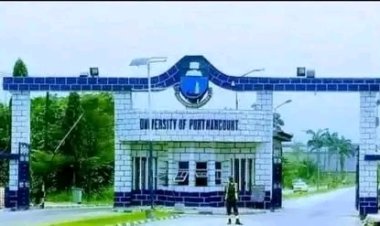FG Passes Bill To Establish Bola Ahmed Tinubu Federal University Adding To Over 270 Universities in Nigeria
Bola Ahmed Tinubu Federal University of Nigerian Languages. Another university may be added to the pool of existing ones following the passage for first reading on Thursday, 10 October,2024.

The House of Representatives of a bill to establish the Bola Ahmed Tinubu Federal University of Nigerian Languages.Another university may be added to the pool of existing ones following the passage for first reading on Thursday, 10 October,2024.You could recall that the National Universities Commission NUC has revealed that there were over 270 universities in Nigeria as of 2024, two of which were founded within the first half of that year Of the total count, 149 were private while state and federal universities added up to 63 and 62, respectively 4 Sept 2024.
The bill, sponsored by the Deputy Speaker, Benjamin Kalu, and eight others, is aimed at establishing a university for the promotion of the learning of Nigerian languages.
News making rounds Today Saturday, October 12,2024 provides that the university when established shall, “Encourage the advancement of learning and to hold out to all persons without distinction of race, creed, sex or political conviction, the opportunity of acquiring a higher education in Nigerian languages and cultures.”
It also aims to “Develop and offer academic and professional programmes leading to the award of diplomas, first degrees, postgraduate research and higher degrees with emphasis on planning, adaptive, developmental and productive skills in the field of Nigerian languages and cultures.
This is aimed at, “Producing socially mature persons with capacity to communicate, understand and use Nigerian languages for national development.”
The federal institution, when established would also “Act as agents and catalysts, through postgraduate training, research and innovation for the effective and economic utilization, exploitation and conservation of Nigeria’s natural, economic and human resources.
“Establish appropriate relationships with other national institutions involved in training, research and development of Nigerian languages and cultures.
“Provide and promote sound basic training as a foundation for the development of Nigerian languages as well promote and emphasise teaching and research activities around Nigerian languages, including outreach programmes, in-service training, continuing education, and adaptive research,” among others.
The mandate of the university as spelt out in Section 1(2) includes “To teach and train high calibre Nigerian languages professionals.
“Provide Nigerian language services and consultancy.“Conduct research and participate in outreach and community services and facilitate the acquisition of knowledge and skills in different Nigerian languages.”
The President who is the visitor to the university, in Section 14 (2), is required to “As often as the circumstances may require, not being less than once every five years, conduct a visitation of the university or direct that such a visitation be conducted by such person or persons as the visitor may deem fit and in respect of any of the affairs of the university.”
Sub-section 3 provides that “It shall be the duty of the bodies and persons comprising the university to make available to the visitor and to any other person conducting a visitation in pursuance of this section, such facilities and assistance as he or they may reasonably require for the purposes of a visitation.”
The Visitor (President) is also vested with the powers to remove from office council members apart from the pro-chancellor and the vice-chancellor of the university.
Section 15 (1) reads, “If it appears to the council that a member of the council (other than the pro-chancellor or the vice-chancellor) should be removed from office on the ground of misconduct or inability to perform the functions of his office or employment, the council shall make a recommendation to that effect through the Minister to the President after making such enquiry, if any, as may be considered appropriate.
“If the President approves the recommendation, he may direct the removal of the person in question from office.”
The bill is expected to be listed for a second reading in the weeks ahead in preparation for a public hearing to garner stakeholders’ input.





